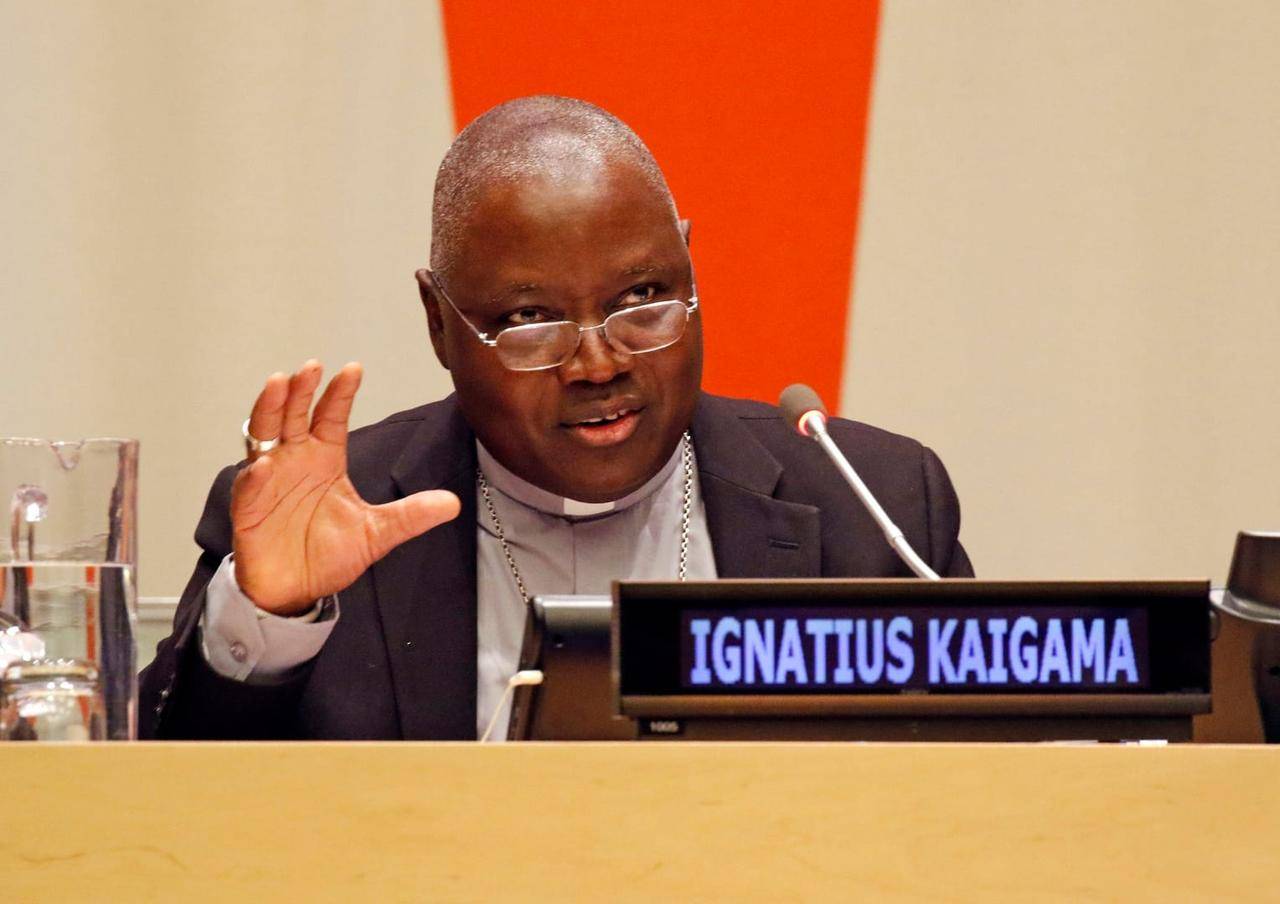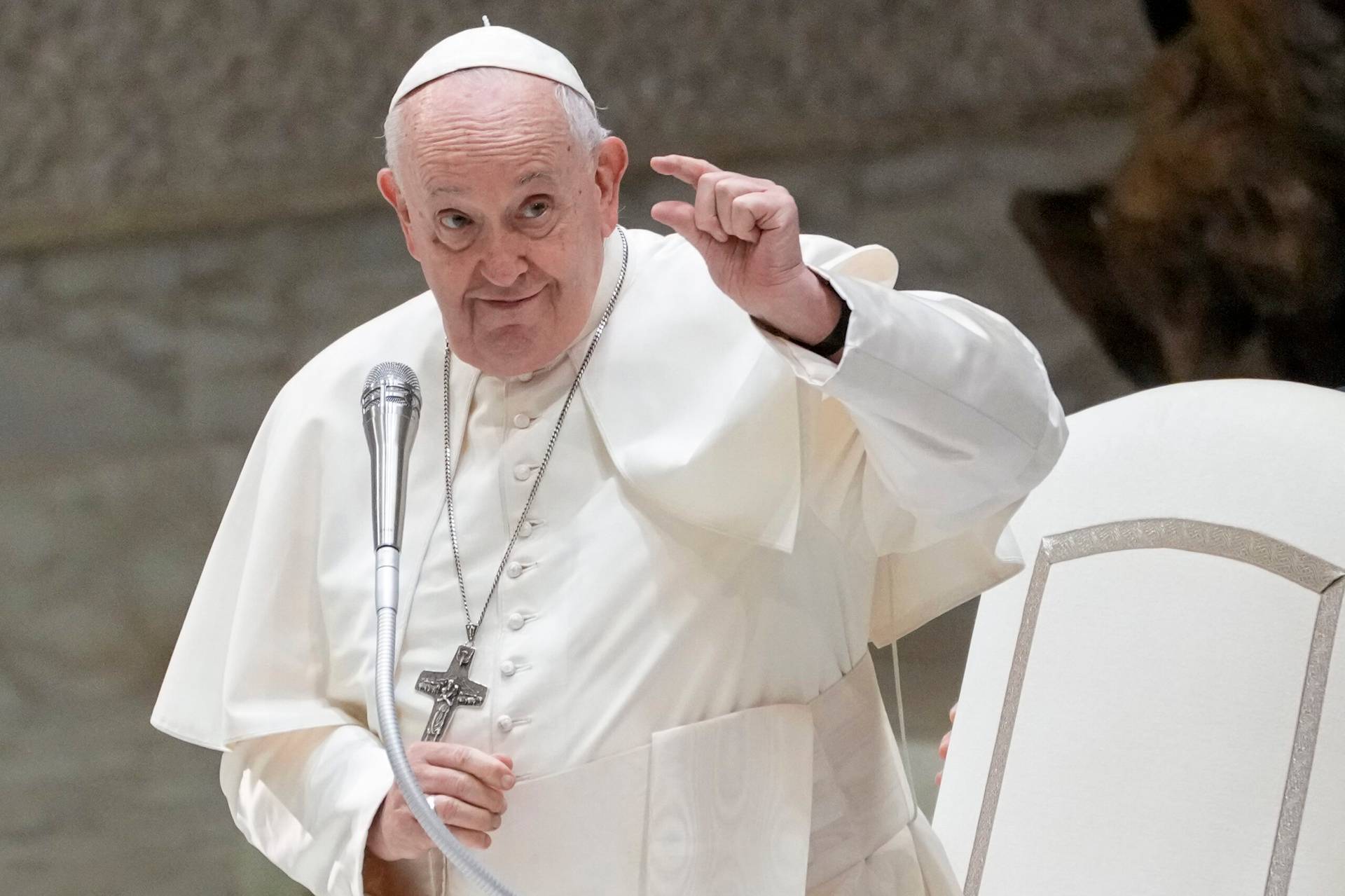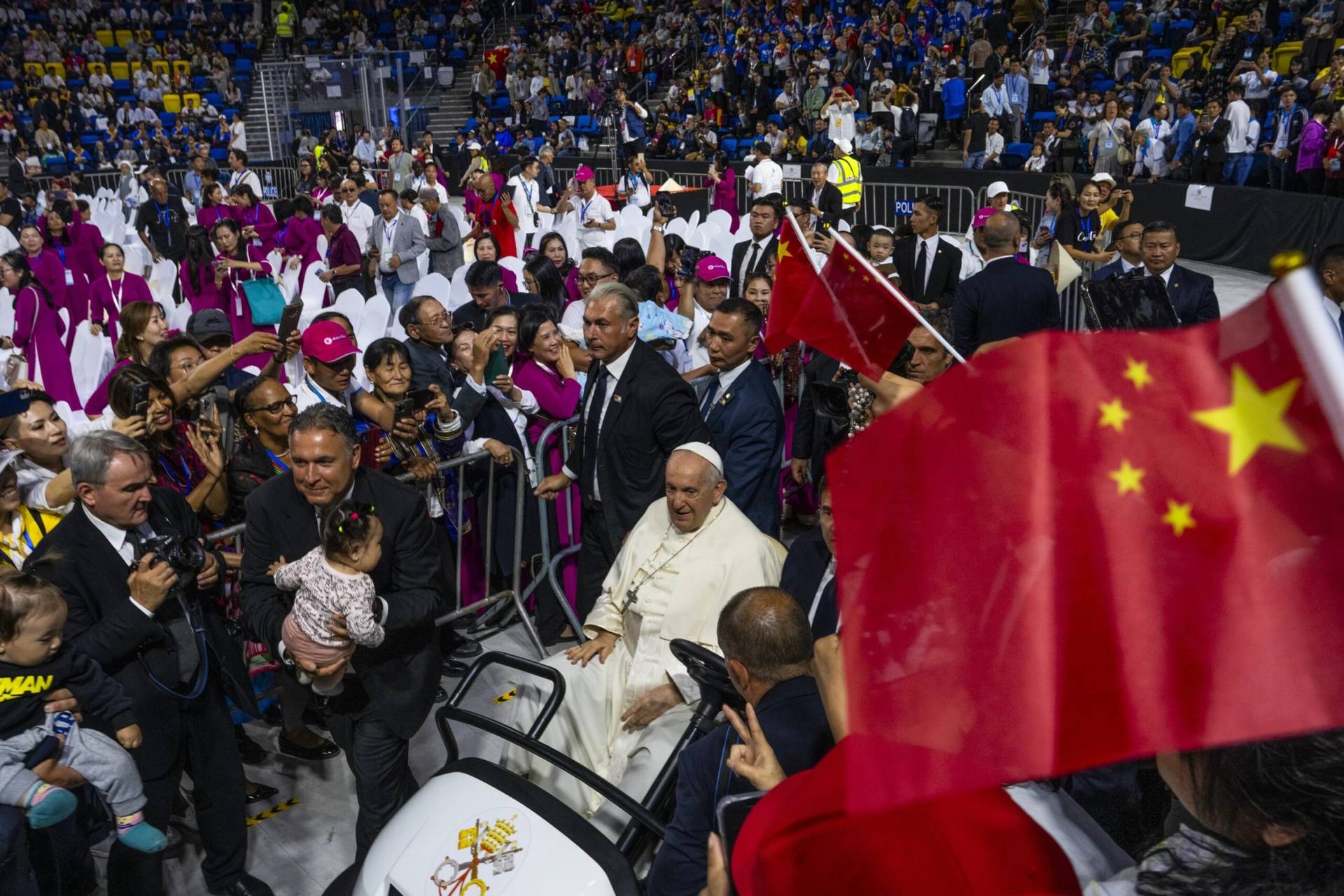ULAANBAATAR – So far during his whirlwind visit to Mongolia this weekend, Pope Francis not only has offered several direct odes to his host country’s ancient cultural and spiritual traditions, he’s also delivered several subtler nudges to the sparsely populated nation’s two superpower neighbors, China and Russia.
Both, for example, are countries where the Catholic Church is sometimes looked upon with suspicion, so Francis may well have them in mind on Saturday when he insisted that “governments and secular institutions have nothing to fear from the Church’s work of evangelization.”
“She has no political agenda to advance, but is sustained by the quiet power of God’s grace and a message of mercy and truth, which is meant to promote the good of all,” the pope said.
In another indirect nod to China, Francis also highlighted the missionary work of an Italian Franciscan Father John of Montecorvino, founder of the earliest Latin Catholic missions in India and China, and the first Archbishop of Khanbalik, the winter capital of the ancient Yuan dynasty of China in what is now Beijing.
On Sunday, Francis appeared to continue the strategy of tacit messaging, using an address to interfaith leaders to take a direct hit at all forms of ideological imposition, saying every religion is measured by generosity and “the standard of altruism” they translate into concrete concern for others.
“Altruism builds harmony, and wherever there is harmony, we find understanding, prosperity and beauty,” he said.
“Harmony” is an especially key concept in Chinese national discourse, often cited by President Xi Jinping as central to China’s foreign policy as well.
“The beauty of life,” Pope Francis said Sunday, “is born of harmony, which is inherently communitarian: it flourishes through kindness, listening and humility.”
Pope Francis throughout the lengthy speech reiterated the benefits that religions generally bring to society, and stressed the importance of engaging in collaborative dialogue for the betterment humanity and the planet.
“Religious traditions, for all their distinctiveness and diversity, have impressive potential for the benefit of society as a whole,” he said, saying, “If the leaders of nations were to choose the path of encounter and dialogue with others, it would be a decisive contribution to ending the conflicts continuing to afflict so many of the world’s peoples.”
Pope Francis spoke during an ecumenical and interreligious meeting on Sept. 3, his third full day in the Mongolian capital of Ulaanbaatar. He arrived Friday morning, becoming the first pope to set foot in the country, and the first to come so close to both Russia and China.
Sunday’s ecumenical and interfaith event was attended by representatives of Buddhism, Hinduism, Shamanism, Protestantism, Islam, Mormonism, and Judaism.
Also present was Father Antony Gusev, the rector of the only Russian Orthodox church in Mongolia, who spoke about the church’s activities there, which include projects involving sports and care for children with disabilities.
Francis pointed to what he said was Mongolia’s rich history of coexistence among followers of different religious traditions, resulting in “a commendable harmony.”
“Harmony is that special relationship born of the creative interplay of differing realties, without imposition or amalgamation, but with complete respect for their differences, in view of a serene life in common,” he said.
By meeting one another, he said, religious leaders can share “the great treasure we have received, for the sake of enriching a humanity so often led astray on its journey by the myopic pursuit of profit and material comfort.”
“People in our time are often unable to find the right path: concerned only with earthly interests, humanity ends up destroying the earth and mistaking progress for regress, as attested by so many injustices, conflicts, persecutions, environmental disasters and great disregard for human life,” he said.
Francis then ticked off what he said are ten different areas in which he sees Mongolia’s “patrimony of wisdom” at work, highlighting its adherence to tradition in spite of consumerism, its respect for the elderly, its commitment to the environment, its appreciation for the value of silence and a health sense of frugality, as well as its cultural hospitality and detachment from material goods.
As religious leaders, he said they all we share “a great responsibility, especially in this period of history, for we are called to testify to the teachings we profess by the way we act.”
“We must not contradict them and thus become a cause of scandal,” he said, insisting that there can be no mixing “of religious beliefs and violence, of holiness and oppression, of religious traditions and sectarianism.”
He voiced hope that the memory of suffering endured in the past, especially against Buddhist communities, would provide “the strength needed to transform dark wounds into sources of light, senseless violence into wisdom of life, devastating evil into constructive goodness.”
In a plug for religious freedom relevant to both Mongolia and its neighbors, the pope said that a pluralistic society committed to democracy ensures that “every religious institution, duly recognized by civil authority, has the duty, and above all the right, to freely express what it is and what it believes, in a way respectful of the conscience of others and in view of the greater good of all.”
The Catholic Church, he said, “desires to follow this path, firmly convinced of the importance of ecumenical, interreligious and cultural dialogue.”
In terms of its own evangelization, the Church he said, seeks to share the good news with “every person and culture, in a spirit of openness and in respectful consideration of what the other religious traditions have to offer.”
Pope Francis stressed the importance of maintaining dialogue, saying dialogue “is not antithetical to proclamation: it does not gloss over differences, but helps us to understand them, to preserve them in their distinctiveness and to discuss them openly for the sake of mutual enrichment.”
The coming together of so many religious leaders, he said, “is a sign that hope is possible.”
“In a world rent by conflict and discord, this may seem utopian, yet the greatest undertakings are hidden and almost imperceptible at the outset…Let us cultivate hope,” he said, praying that their joint prayer and fraternity would “spread the seeds of hope” on earth.
“May they be a simple and credible testimony to our religiosity, our walking together with eyes lifted to heaven, our living in this world in harmony, as pilgrims called to preserve the atmosphere of a home that is open to all people,” he said.
Follow Elise Ann Allen on X: @eliseannallen














